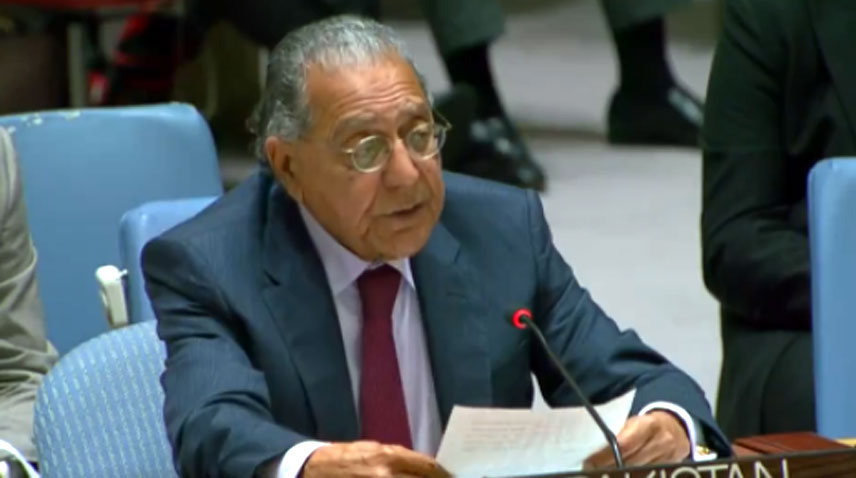ISLAMABAD: Pakistan’s top diplomat at the United Nations has raised alarms about the terrorism threat originating from Afghanistan, according to a statement released on Thursday. Ambassador Munir Akram highlighted that the situation in Afghanistan remains unstable three years after the Taliban assumed control.
He characterized the Tehreek-e-Taliban Pakistan (TTP) as the largest terrorist organization in Afghanistan, conducting nearly daily attacks against Pakistan with the full support and protection of the Afghan Interim Government, backed by Pakistan’s major adversary.
In recent years, Pakistan has seen a significant rise in militant violence, which officials attribute to armed groups based in Afghanistan. The TTP, in particular, has been responsible for numerous deadly suicide attacks targeting civilians, security forces, and Chinese nationals involved in major energy and infrastructure projects.
Last year, Pakistan accused the Afghan government of “facilitating” the TTP, prompting a deportation campaign that resulted in the expulsion of over 700,000 Afghan immigrants. The Afghan authorities have denied any involvement in Pakistan’s security issues and protested against the expulsions.
“Given its long association with Al Qaeda, it will not be long before the TTP becomes the spearhead for Al Qaeda’s regional and global terrorist objectives,” Ambassador Akram stated at a UN Security Council meeting addressing the situation in Afghanistan. He cautioned that while some nations may see ISIL-K (Islamic State of Iraq and the Levant-Khorasan) as their primary threat, they should also be vigilant about the dangers posed by a strengthened TTP in the near future.
Referencing the 34th report from the UN monitoring team, Ambassador Akram noted the alarming rise of terrorism linked to Afghanistan. He warned that the TTP is evolving into an umbrella organization that coordinates with Baloch separatist groups targeting Pakistan’s southwestern province.
“It is clear that Afghanistan is far from achieving normalization three years after the Taliban took control,” he remarked. “True normalization will not occur until fundamental issues—such as terrorism, human rights, political inclusion, illegal migration, and the plight of Afghan refugees—are addressed.”
The ambassador reaffirmed Pakistan’s commitment to supporting a peaceful and stable Afghanistan, emphasizing the necessity of greater political inclusion for enhancing stability and normalization prospects. He expressed particular concern over the deteriorating human rights situation, especially regarding women and girls.
“Instead of easing previous restrictions, the Afghan Interim Government has intensified its misogynistic policies with new edicts that silence the voices of women and girls,” he said. “We are particularly dismayed that these abhorrent measures are being justified in the name of Islam. Such regressive actions violate the principles of our enlightened religion, which was the first to advocate equal rights for men and women.”
In conclusion, Ambassador Akram stated that Pakistan is dedicated to expanding trade and commercial relations with Afghanistan and remains a crucial partner in implementing regional infrastructure and connectivity projects to foster economic stability and growth in the region.


